STORIES OF WOMEN & GIRLS ON THE SPECTRUM

Over the past three years I photographed 100 women and girls with autism
It is my goal to create more knowledge, understanding and visibility for autism in women with this photo project.

I’m the mother of one son and a ‘gift-mom’ of two bonus kids with ASD and/or AD(H)D. I got my diagnoses because people didn’t really know why my son was having issues at a young age.

The medical explanation about autism did not give me a positive image of myself, but it did help me find peers. I understand other autistic people much easier and I like talking to them!

I feel proud of how in the past ten years I have managed to climb out of a deep depression, and despite remaining low energy, I now feel stronger and better than I have ever done before.

You can't tell I’m autistic from my appearance. But I have trouble with changes, with planning, I don't like fruit and vegetables and I have a very monotonous diet.

Autism has always ensured that situations often quickly get "too busy" for me, which makes me get overwhelmed. As a result, I live a very withdrawn life. Some people call it isolation, but I don't experience it that way myself.

Others will characterise me as open, honest and direct. This is definitely true, as I like to share a lot with people and I dislike it when people have different intentions than they initially show.

If I may pass on a tip to anyone diagnosed with ASD, or perhaps in doubt about having ASD, please trust your feelings (after all, you have antennae for a reason) and above all, be kind to yourself! It is hard work and being 'different' is sometimes quite confronting.

I think it's important to join FANN at this point in my life, as a pregnant autistic woman. People with autism are still confronted with people who actively advise against starting parenting. I don’t understand that. No, parenting isn't for everyone, but that also applies to people without autism.

I also experience positive things due to my autism and that is, for example, that I am a very honest and pure person and that I am so very sensitive, that I want to help everyone I love when they don't feel well and also that I sense very strongly about other people.

I am proud of where I’m at in my life. The past few years haven’t always been easy and my physical and mental health has been terrible. Autism (or rather the not knowing) has indirectly been the cause of this.

There’s always something going on in my head. Whether it's conversations I’m repeating or preparing, situations I am trying to visualize, annoying songs that seem to be on an endless repeat; it’s never quiet.

I'm excellent at masking, and I know what’s expected of me socially , which makes it appear like I'm keeping up pretty well. In reality, this takes a lot of effort.

Autism is everywhere in me and in what I have drawn in and accomplished in life. I see that as a blessing. Life is rich as an autistic. Deep, intense and therefore rich.

I don't like going to birthday parties, because they get too busy very quickly. When I’m at a party, I occasionally look for a quiet spot.

I have autism, ADHD and dyslexia. I prefer to be in nature, where I can truly relax. I also have a lot of interests and hobbies, such as drawing, reading (especially fantasy and SciFi), astronomy, construction material and playing the piano.

My communication is more verbal than nonverbal. For example, I could be standing with my arms crossed while I say something supersweet. My body language is often more closed, but my face ALWAYS betrays me.

When I came back from my mission to Afghanistan, my mother sent me to a doctor because I was depressed. Since then, I've had more and more of periods like these, I became more emotional, I felt stuck and I was severely fatigued.

It’s difficult for me to switch between activities and I need a lot of time to let information and impressions settle.

I grew up with an autistic brother who also has an intellectual disability, in this I took on a significant caring role. Yet I soon noticed that I understood/could very well follow my brother's 'different thinking and being'.
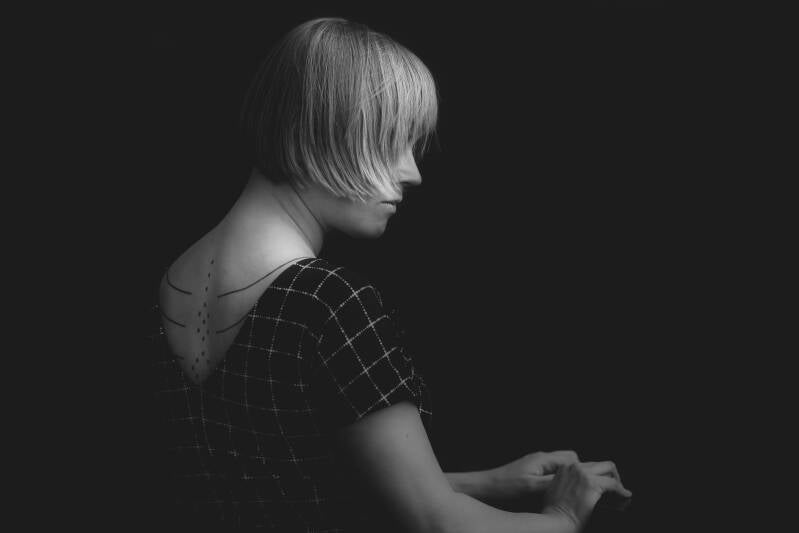
I'm just a late bloomer. It's nice that I can do the trick of adjusting myself, but it's also nice that I don't always have to do that anymore. I’m proud that I dare to be myself more now and I’m daring to ask for what I need.

I have been in the mental health world since childhood and have been through several admissions and treatments. Since a few months, I have been living back in my parental home with my father, mother and brother.

I’ve learned to listen to my feelings and my body. And I now know how important it is for me to have balance between activity and rest, and what I need to achieve that.

For the most part, autism has had a positive impact on my life, in the sense that I am more self-aware, and more patient with myself as well.

It irritates me when children tap me when they want to tell me something.

I do not tolerate smack noises well and I am a difficult eater because I cannot handle many textures.

It’s important to listen to yourself. Don't get lost in "that's what everyone does" and don't think it's selfish or weird. I wear sunglasses on cloudy days, on the sunniest days I stay indoors.

I want to do everything the best I can, more than just 100% percent, for others as well, which makes me forget about myself.

I’m very well-behaved and honest. I like to follow the rules. When I feel at ease, I love to chat.

I still find it hard to use the word 'autism' when talking about myself. I prefer to use the abbreviation ASD. I’ve also told few people in my environment about the diagnosis, but participating in this project is a big step in the acceptance process for me.

For me, being autistic mainly means that I always have to take into account how I process information. I feel that a lot comes in and I also remember a lot of things.

Because I’m still nonverbal, it is hard for me to express myself which can often be frustrating for me. Furthermore, my mother and grandmother support me a lot.

I am a true go-getter and I really believe that I can achieve anything I want. I will never give up. But I’m also learning to listen to myself more and more, what do I want? What's good for me?
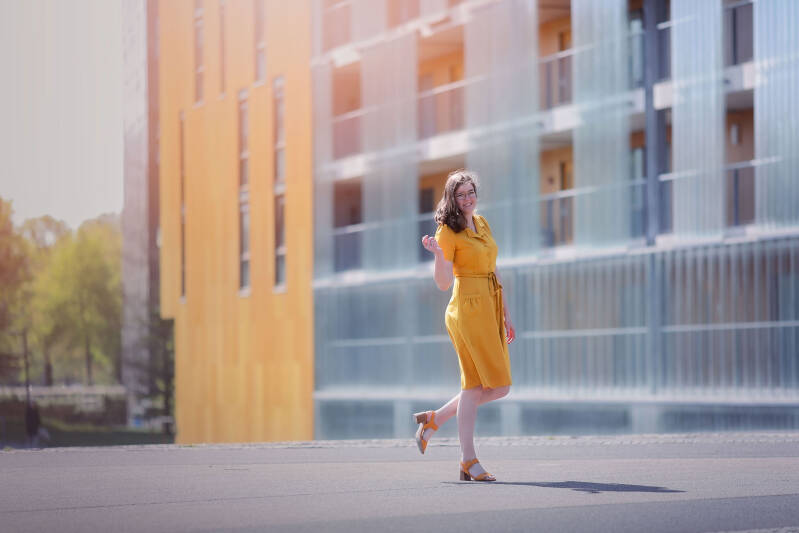
I do suffer a lot from external stimuli. For example, I suffer from light, sound and sudden touches. But internal stimuli are difficult to me as well. I often do not realize that I have to drink something or that I have eaten enough.

It hasn’t been known for long that I am autistic. But I've always felt I was different. I thought and acted differently, but never really cared about it. I am who I am and that’s enough. I did wonder why, of course.

I can not cope with changes and my processing speed is very slow and I have difficulty making contact as well. So looking at people etc. and social activities will cost me a lot of energy.

It’s very important for me to plan and keep controle: the housekeeping, my job, what I eat, appointments, working out and personal finances, and the most important thing… my moments of rest.

Due to being autistic, I am creative. I really like drawing and crafting. But what really interests me is anatomy. I love everything related to the human body. My favourite programme on television is Top Docs.
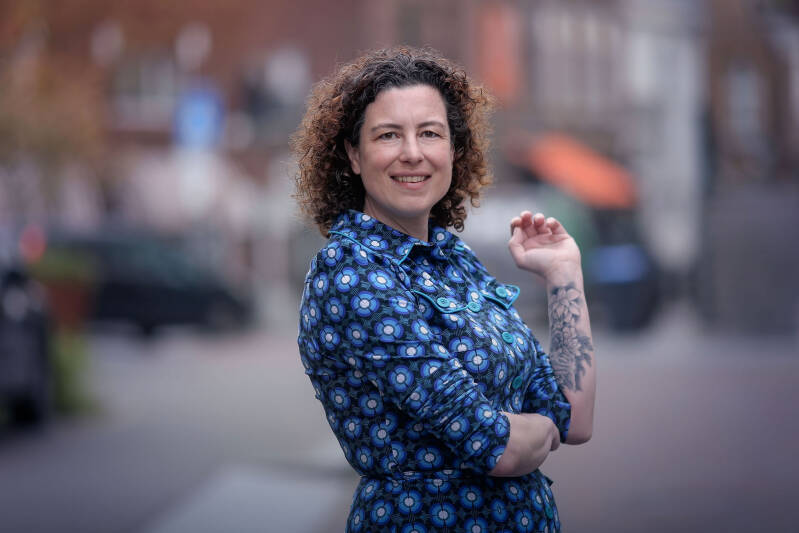
I wanted to prove to my circle that I am not stupid or different, even though I had that idea myself. The constant stress also resulted in 2 cancer diagnoses before the age of 40.

I’m proud of surviving many dark 'nights of soul'. And I’m also proud of the result of my efforts to 'color the world a little better', by giving lectures about various aspects of autism and about 'The New Age', among other things.

I was diagnosed with ASD six years ago. Although I was hardly familiar with what this meant, it was a relief to have an explanation for my 'behaviour', having always felt so different.
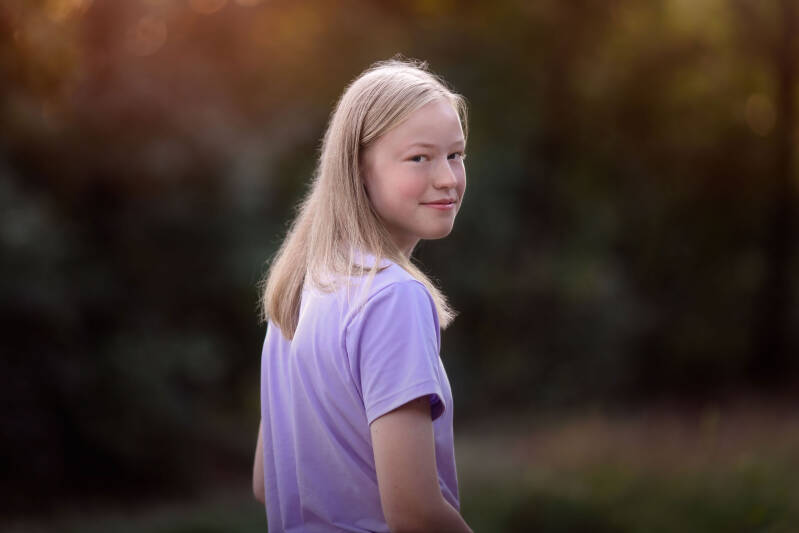
I’m proud that - in recent years - I have come to know myself better and that, as a result, I can listen to myself better and therefore set boundaries.

I collected 9 diagnoses and only found out at the age of 37 that I have autism. When I finally thought I was getting appropriate treatment, I was told that I was too complex and that, due to my long therapy history, treatment wasn’t an option anymore.
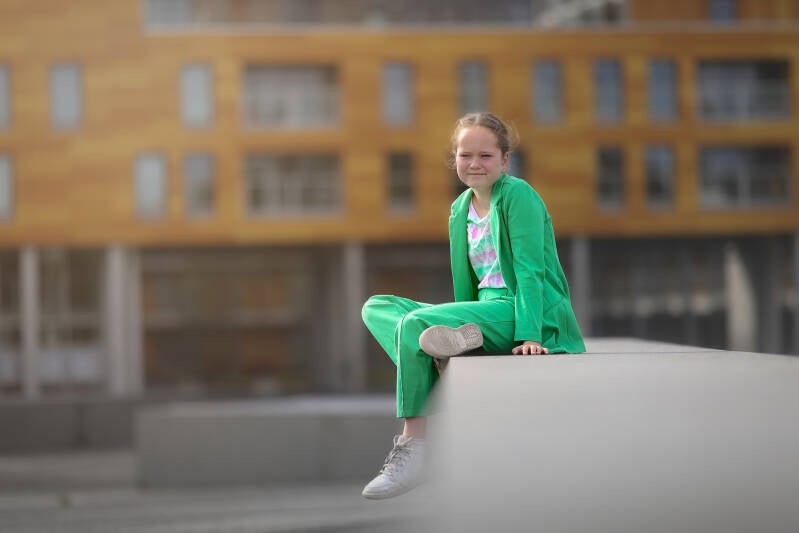
When I am overstimulated, I get hyper, don't listen well or get angry and start swearing. Moos helps me de-stimulating. He feels like a little brother. When he lies with me and I cuddle with him and smell him, I calm down.

It was my biggest wish to become a mother. I am intensely happy with my beautiful daughters, I am proud of them and always prepared to make the biggest effort for them. Although our autism expresses itself differently, we have a huge understanding for each other.

I tried to adjust myself everywhere, like a chameleon. After receiving my diagnosis, a lot fell into place. About 7 years later I also got diagnosed with ADHD, so I could finally get medication.

I get fatigued faster, have to take more rest periods and take good care of myself. I often find this difficult, because I just want to fit in with everyone else and not be "different".
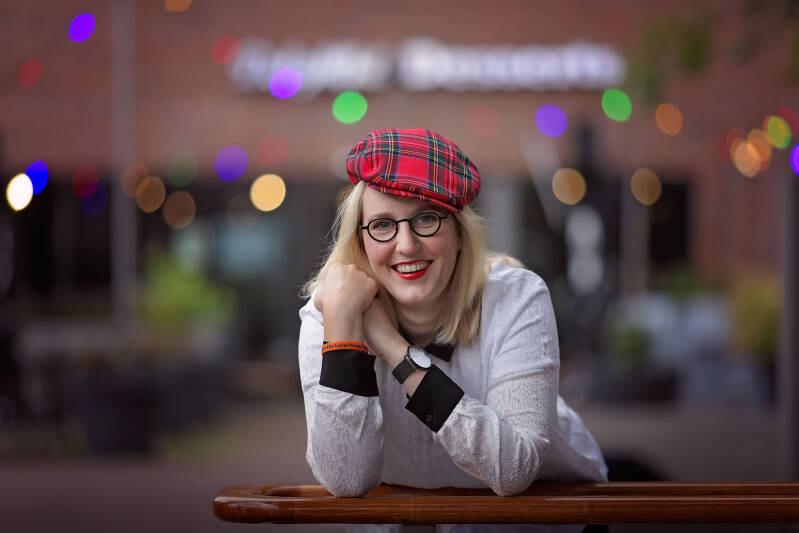
Because of autism I have strong passions, now expert knowledge. In my case, they are the latin language, translating, (geo)politics and in particular Northern Ireland.
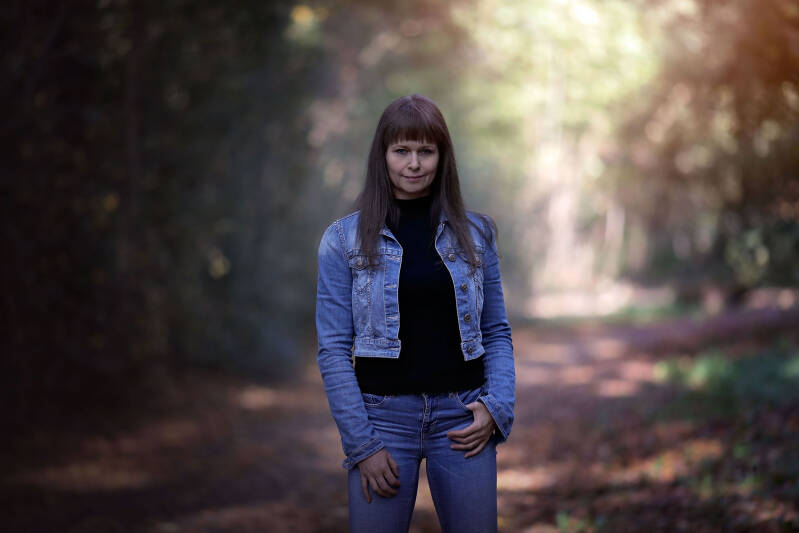
Last June, I was diagnosed with ASD. I want to be in that 'box' with that 'label', because outside of a box I have always presented myself differently and adapted to my environment.

I get upset when people make ‘jokes’ that I don't understand. It's hard for me to make eye contact, which I don't mind, but some people really want me to look at them. That doesn't feel right.

I also experience beautiful autism moments. I can experience emotions to an extreme degree, including joy and happiness.
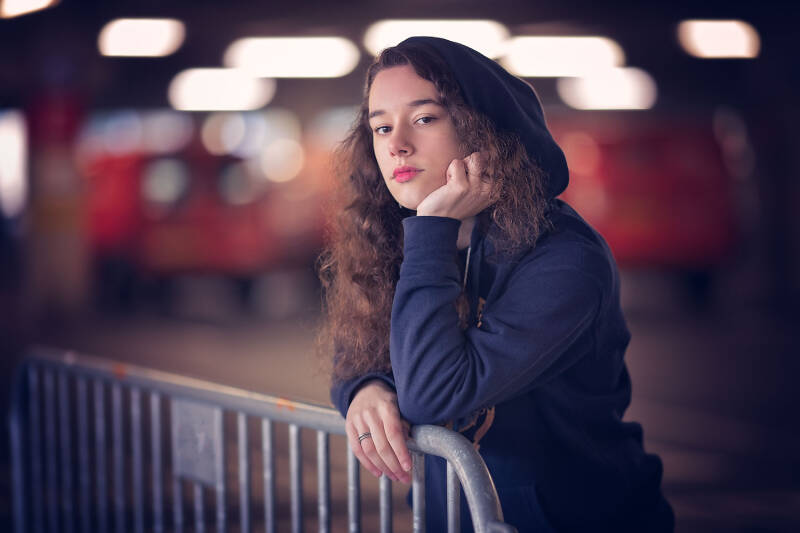
Before I was diagnosed, I was already noticing that I was different from other children my age. Where other children would meet up on the weekends, I stayed home to recover from the busy week I'd had.

Were the therapists right? Have they properly done their research? Haven't I fooled them because I already knew so much beforehand? Isn't it a 'hype' these days?

Because I am truly me, I sometimes get comments that I’m childish or not normal. I try not to worry about that, because I believe that age-related behaviour doesn’t exist.

In high school, I already recognised myself in the autism diagnosis, but my psychologist refused to consider it seriously. A few years ago, I collapsed and fell into depression. As a result, I finally got the recognition of my autism.

I am now embarking on a new adventure of becoming a mother. Something I really look forward to, and it excites me.

Masking was there from an early age and it happened almost without me realizing it.

I am proud to follow my own journey. I wear clothes I like, even if they are unlike the average woman's. I eat vegan because it makes me feel good.

I love to be creative, I like to watch Ginny and Georgia and other series on Netflix. I also like to spend time on TikTok and Instagram.

What I would like to pass on to other people with autism is that sometimes you have to be brave to claim inclusion by expressing your needs.

Working 5 days a week at a high position turned out to be far too much for me with my autism.

If you think something won't work for any reason, follow and trust your gut and don't do it. Don't go with the mainstream because you think you should or because they are expecting you to.

I am proud that, despite my diagnoses, I still do a lot of things outside of school. I am a member of the student council, the debate club and next school year I will be the chairman of the GSA at my school.

Autism plays a role for me mainly on the inside. Very ordinary things come in a bit harder, cost me more energy, cause more rollercoasters in my head.

Autism is seemingly intertwined with everything in my life. I don't know yet how this works exactly; the diagnosis is still fresh.

At last the search is over, and there is peace and reconciliation. I feel at home with this diagnosis. I now know that I don't have to fix anything anymore, this is who I am.

I’m in the middle of the process of what autism and ADD mean to me. That is why I see this project as a big step in my acceptance process of my diagnoses.

Three years ago, I was diagnosed with autism after ending up in burnout.

It feels like I'm in a body that doesn't belong to me and that evokes a lot of emotions and insecurities. Often, I don't know how to deal with these emotions.
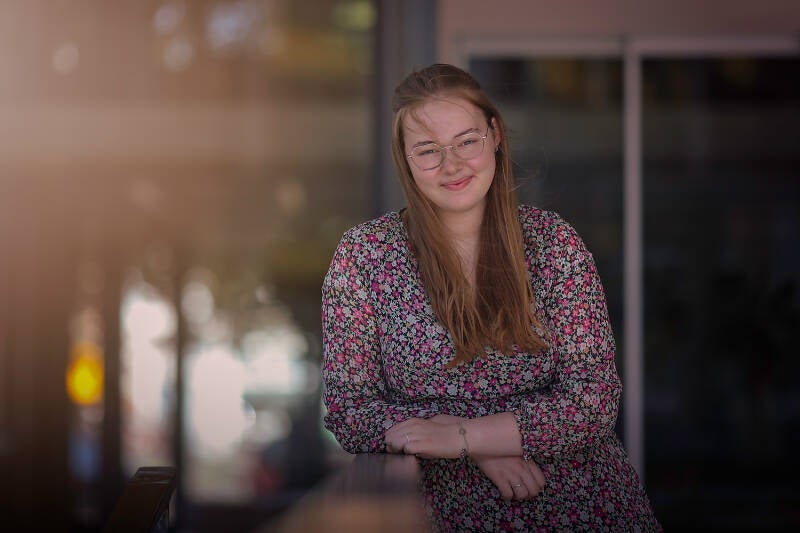
I dropped out of school. I do have plans to pick this up again. I would like to do HAVO in special education. That way, I hope to become an experience expert! I am proud of my extreme creativity and perseverance.

After reading a piece on the internet about women with autism, all the pieces of the puzzle fell into place for me, and I started with further exploration.

One of the things I like is horses. I like taking care of horses, being around horses and riding horses.

It’s very confrontational and sad when you suddenly realize that all those years you 'haven’t been or couldn’t be yourself completely'. I have lost myself, and my identity, because of this.

I don't shy away from things. When I start something, I finish it. I am also proud that I can see my autism as a strength.

Overstimulation is like getting a headache which appears after being exposed to light, lots of sounds, new situations, etc. It really feels like being ill.

I am grateful to the person who told me I might be autistic, because after all these years, this has allowed me to understand myself, be myself and not have to prove myself with things I see other people achieving so easily.

When I read a bit more about masking in autism, it was like I was reading about myself.
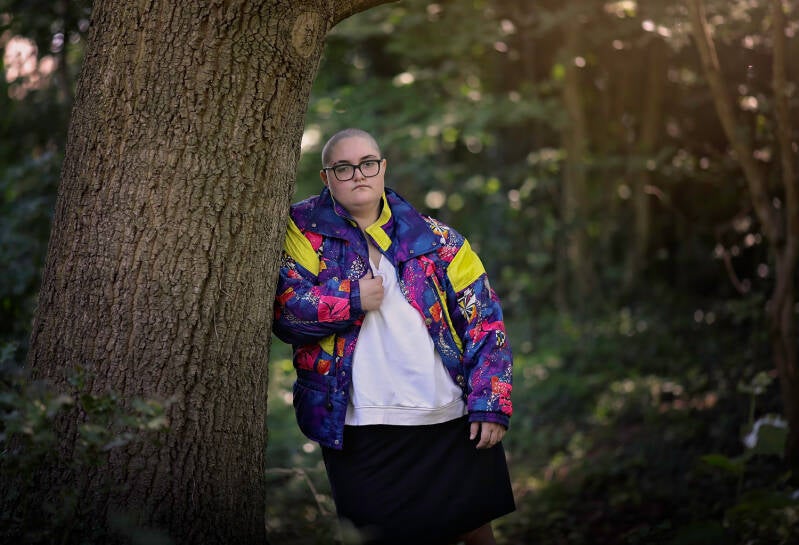
I have been bullied a lot, because I was different and didn’t fit the norm. I felt so lonely, I tried to conform as well as I could, but it seemed as if people could feel I was different.

From an early age, it was clear that I was gifted. But I always felt that that wasn’t the entire story. Ten years ago I came to the conclusion that I might be autistic.

I was diagnosed with ASD in my primary school days. This came as a shock to me, because I had very strong opinions about people with autism.

I got stuck in life, especially when I started living on my own and studied Physiotherapy.

I find it difficult to answer what impact autism has on me, purely because I recently learned that it’s combined with ADHD

In addition to autism, I have sensory integration disorder, which is quite difficult. This causes all kinds of stimuli to be a lot more intense.
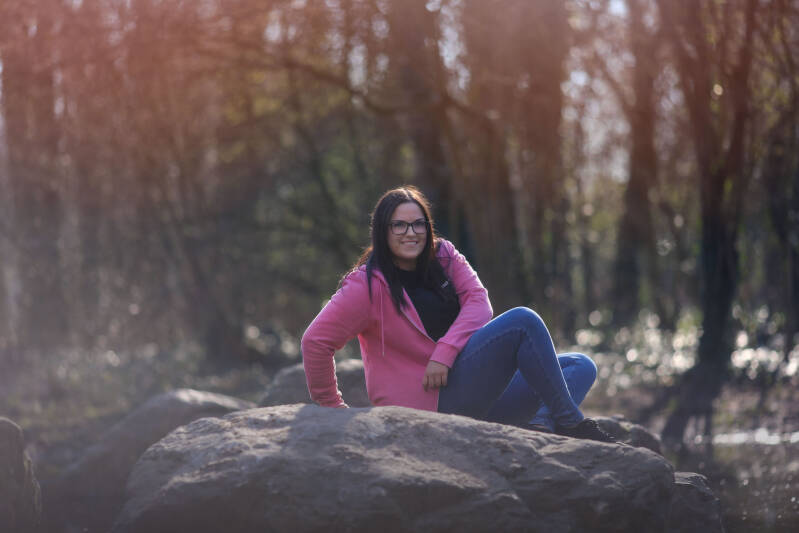
I’m afraid to make phone calls and I’m scared to go outside by myself. This makes it that I’m afraid to do anything alone and my boyfriend/mother have to go everywhere with me.

Autism has a much bigger impact on my life than I had expected.
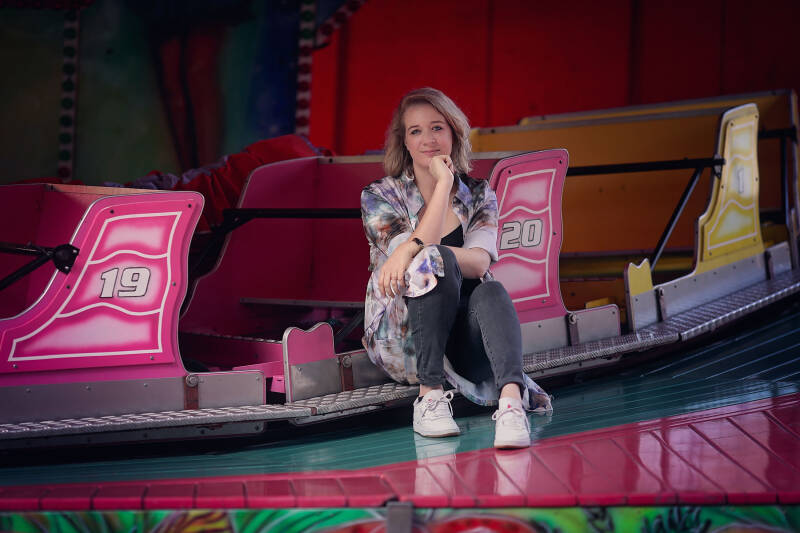
Daily stimuli, mainly (social) crowds and lots of information, manifest themselves in fatigue. Pain stimuli I feel too late, causing me to walk around with certain ailments for too long

If you have a bit of tension in your head or body, do the bicycle pump. That is an exercise with breathing that I learnt in school.

My tip for people with autism is mainly to be yourself! It’s very hard and exhausting to pretend to be different from who you actually are.

I love fantasy, gaming and animals, and I like going to fantasy festivals and rock/metal concerts with my boyfriend or friends.

I didn't experience the problems that were described about people with autism. And vice versa, I did have issues that were not linked to autism.

By openly talking about autism and neurodiversity together, I hope we can create a more accessible society. A society in which we can all be the best version of ourselves!

I have made great steps in my personal development. I am a social, spontaneous girl, well balanced, with a positive attitude, I have a good foundation, and I am grateful for what comes up in life.

I am proud of my autism.
I am different from others and that makes me who I am.
Everyone is different, but my autism makes who I am.

I’ve almost completed my engineering studies, but I cannot yet imagine myself as a professional. The responsibilities, the workload and the interaction with colleagues scare me.
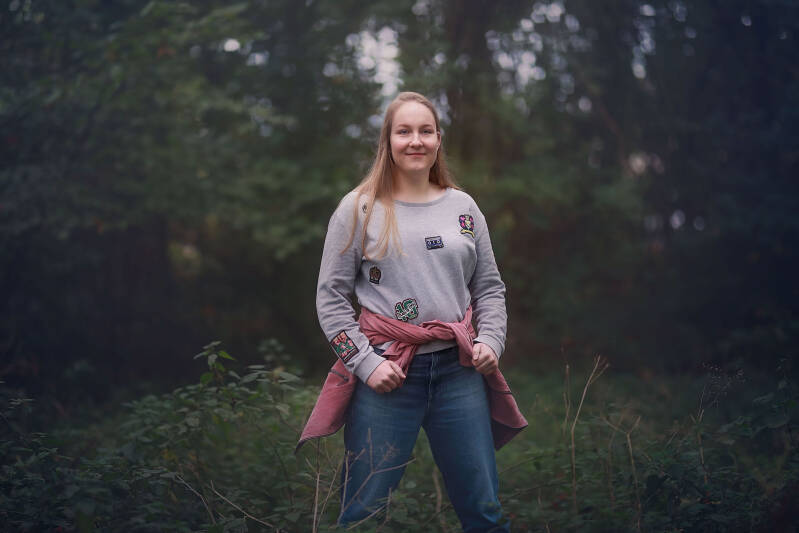
I had a burnout in 2015. After, in 2018 I received an autism diagnosis and got the right help. I'm proud of how far I've bounced back now.

I don't shy away from things. If I start something, I also finish it. Likewise, agreement is agreement for me, no matter how difficult it is.

Awareness is very important to me. Since this year I have been following a year long course in Ayurveda, and this helps me getting to know and understand myself better. This way more and more pieces of the puzzle fall into place.

What’s quite beautiful is that I can really enjoy the small things in life, especially nature or music, and that I can sometimes express my feelings well in (abstract) painting and in poems.

I dare to be myself more and more, and I’m not ashamed of it.

If necessary, I use a schedule, but sometimes not, because I want to be able to stay flexible.

I spend much of the time living in the safe and orderly world I have created for myself. Within it, I can live as I please and experience very little struggles.